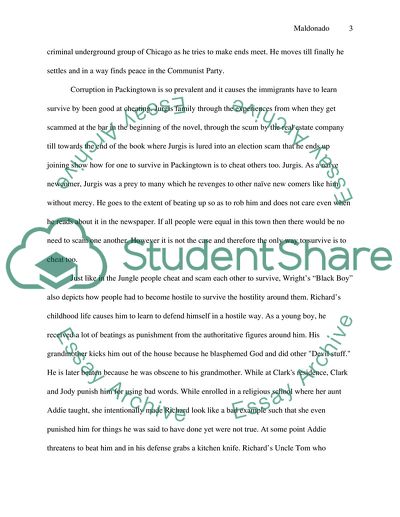Cite this document
(“Novels; The Jungle by Upton Sinclair and Black Boy by Richard Wright Essay”, n.d.)
Novels; The Jungle by Upton Sinclair and Black Boy by Richard Wright Essay. Retrieved from https://studentshare.org/literature/1692567-novels-the-jungle-by-upton-sinclair-and-black-boy-by-richard-wright
Novels; The Jungle by Upton Sinclair and Black Boy by Richard Wright Essay. Retrieved from https://studentshare.org/literature/1692567-novels-the-jungle-by-upton-sinclair-and-black-boy-by-richard-wright
(Novels; The Jungle by Upton Sinclair and Black Boy by Richard Wright Essay)
Novels; The Jungle by Upton Sinclair and Black Boy by Richard Wright Essay. https://studentshare.org/literature/1692567-novels-the-jungle-by-upton-sinclair-and-black-boy-by-richard-wright.
Novels; The Jungle by Upton Sinclair and Black Boy by Richard Wright Essay. https://studentshare.org/literature/1692567-novels-the-jungle-by-upton-sinclair-and-black-boy-by-richard-wright.
“Novels; The Jungle by Upton Sinclair and Black Boy by Richard Wright Essay”, n.d. https://studentshare.org/literature/1692567-novels-the-jungle-by-upton-sinclair-and-black-boy-by-richard-wright.


